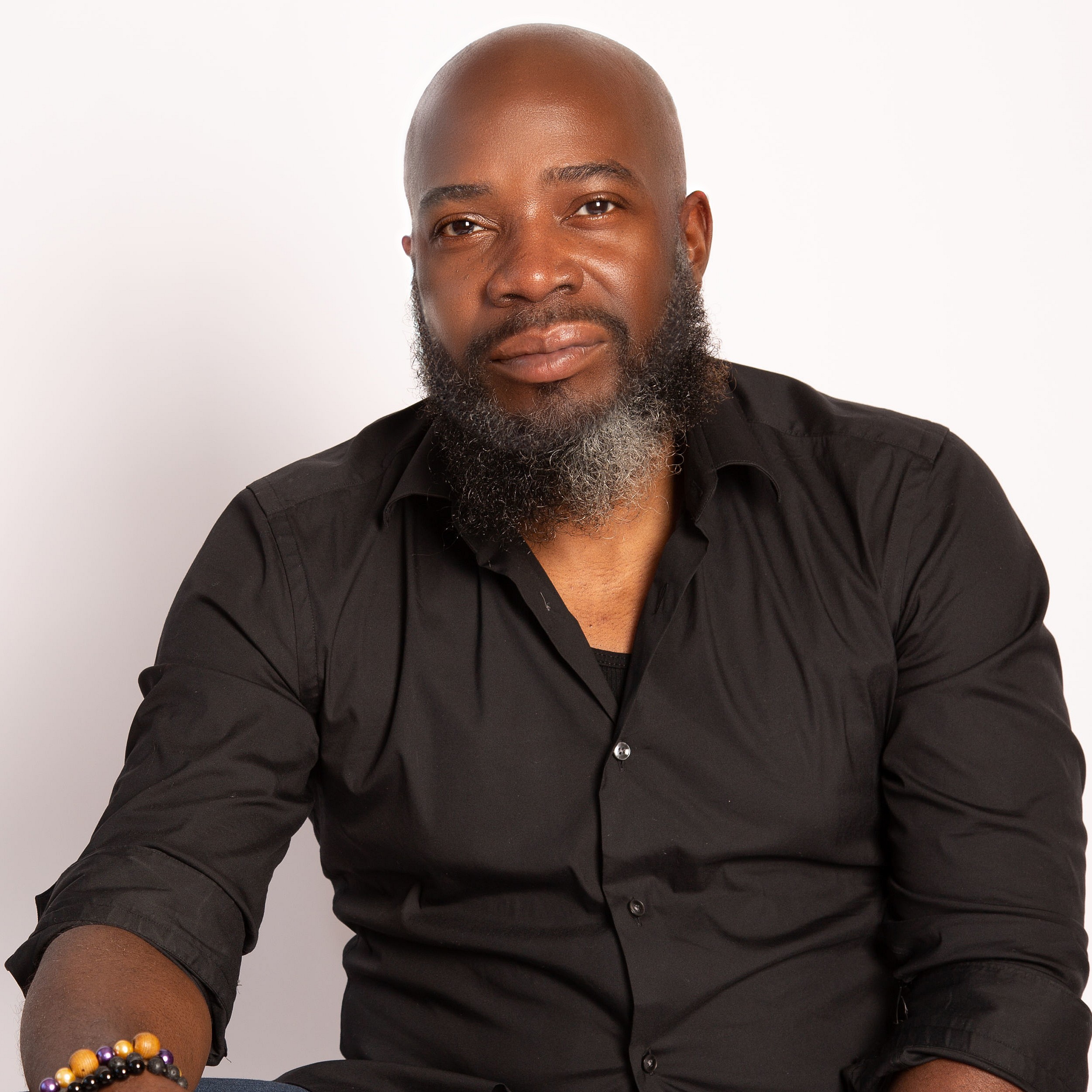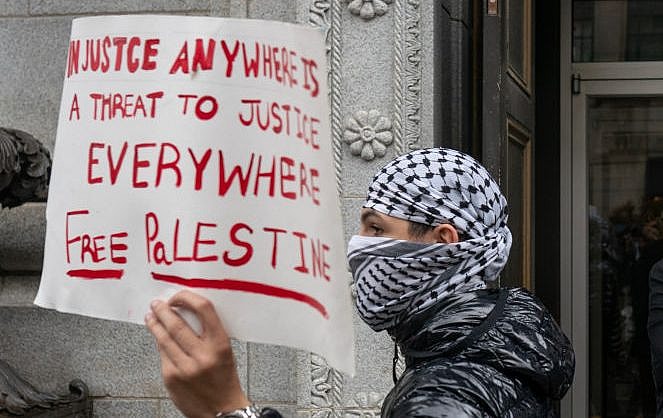Editor’s note: The following article is an op-ed, and the views expressed are the author’s own. Read more opinions on theGrio.
This article is not about the Israeli-Palestinian conflict.
This article does not attempt to equate the plight of Palestinian people with the Israeli victims of terrorism or the Black American targets of white supremacy. This article has nothing to do with Jewish people or Israeli citizens. Because there are people far more educated on the geopolitics of the Middle East, this article isn’t about Hamas or Israel or Jews or Palestinians or geopolitics in general. This article isn’t even about language, oppression or free speech.
According to the most recent NPR/PBS NewsHour/Marist poll, 38% of non-whites see Israel’s response to the attack by Hamas as “too much” compared to 20% of whites. A CNN poll found that 62% of white Americans think Israel’s response to Hamas attacks was “fully justified,” versus 31% of non-whites. But, before you jump to the conclusion about people of color supporting Hamas, terrorism or anti-semitism, let me explain what this article is about.
As someone who grew up under an oppressive authoritarian regime, my language has always been limited.
Although the U.S. Constitution says, “Congress shall make no law respecting an establishment of religion,” dictator-in-chief Dorothy Harriot required her offspring to attend church services four days a week. Our access to the press was limited to Ebony magazine, the local newspaper and Dan Rather. Although my mother allowed me and my sisters to petition her totalitarian government for a redress of grievances, “I said what I said” was a final answer. And, during my youth, the concept of “free speech” did not exist.
My mother considered the use of the Lord’s name in vain as profanity. Along with the standard list of “cuss words,” if my sibling or I called someone a “liar,” a “dog” or “stupid,” we could possibly spend weeks in solitary confinement (our bedroom). But there was one forbidden phrase that warranted the highest level of discipline.
“Shut up.”
According to the rules of our makeshift matriarchal autocracy, telling someone to shut up was equivalent to assaulting them. My mama’s ban on the words didn’t even fall under the statutes governing speech; the phrase was antithetical to the laws of humanity. In her view, telling someone to shut up robs them of their agency and is perhaps the most essential step in robbing people of their humanity. It is the implied threat of violence and the most common tool of oppression.
This article is about that.
The tool of the oppressor
Whenever any group of people raise their voices against oppression, “shut up” is the tool that is inevitably used to silence those who support freedom and equality.
Most recently, the tactic has been used to silence anyone who supports the right for Palestinians to exist in their homeland. Conflating those who object to depriving human beings of power, cutting off their water supply and forcing them out of their country with support for a terrorist organization is an intentional act of silencing. It’s why Reps. Jack Bergman, R-Michigan, and Morgan Luttrell, R-Texas, can reject the First Amendment and call on Congress to censure Democratic Rep. Rashida Tlaib for grieving “the Palestinians and Israeli lives” while fighting to dismantle “the apartheid system that creates the suffocating, dehumanizing conditions that can lead to resistance.” It’s why colleges are silencing pro-Palestinian protests. It’s also why Christopher Rufo, the man responsible for “quite intentionally redefining what critical race theory means in the public mind,” tweeted this:
This is the tool of oppression.
But in America, whiteness is the dictator of all things. It is the authoritarian that defines freedom and determines what is profane. It can redefine “wokeness” as “anti-white” and insert an invisible “only” before the phrase “Black lives matter.” It transforms demonstrations against brutality into “anti-police” and makes history illegal. And the tyranny of “shutting people up” is as American as anything that has ever existed.
It was employed by Southern whites — not just slaveholders — who issued a $10,000 bounty on David Walker to shut him up after he wrote his four-part “Appeal to the Colored Citizens of the World.” After Nat Turner’s rebellion, Virginia’s legislature thought 39 lashes would shut up “free negroes or mulattos” who “write, print, or cause to be written or printed, any book, pamphlet or other writing, advising persons of colour within this state to make insurrection, or to rebel.” The reason we don’t have copies of many of Ida B. Wells’ early writing is because a white mob tried to shut her up by burning down the Memphis Free Speech.
These laws did not enslave people or noncitizens, just people who were not white.
But, for the oppressed people of America, silence is not an option. For many, “support” is more than a symbolic statement or an online virtue signal. Standing up for the oppressed is not a zero zero-sum game.
A closer look at the above-mentioned polls reveals that non-white people’s support for Israeli victims is equal to their support of Palestinians. More Palestinians have died since the Hamas terrorists attacked Israel. Israel has one of the deadliest militaries on the planet. And if one believes that life is precious and murder is bad, speaking up for those who don’t have the power to protect themselves is a moral duty.
Once, during the appeals phase of one of my many first-degree shutting-up trials, my mother explained why telling someone to shut up is an immoral act. (Yes, we had an actual appeals court, with actual juries and written rulings that she posted on our bedroom doors). But in the case of Michael vs. Comelita, my mother didn’t even bother to deliberate before issuing an oral decision.
“When I brought you into this world, you had was a voice,” she said in her concurring opinion (she concurred with herself). “It’s all you had. If me and God saw fit to give it to you, you bet not let nobody take it.” Then, as if it were a secret or a prophecy or a Bible verse, my mother paused, leaned in and whispered the sentence that it is impossible for me to unremember:
“And someone will try to take it.”
On most issues, there are no “sides.” Black people don’t support crime or murder. We protest because we understand that police officers have guns and the full authority of the state. Even if Rufo’s anti-white movement hysteria were real, white people would still have the power of the majority and the protection of a Constitution. Most people don’t hate Israel. They just recognize that Israel has the support of the Western world and one of the most advanced militaries in the history of the world. Palestinians living in an apartheid state are being killed, starved out and removed from the land of their ancestors …
And we have our voices.
This story is about that.

Michael Harriot is an economist, cultural critic and championship-level Spades player. His New York Times bestseller Black AF History: The Unwhitewashed Story of America is available everywhere books are sold.
TheGrio is FREE on your TV via Apple TV, Amazon Fire, Roku, and Android TV. Please download theGrio mobile apps today!


